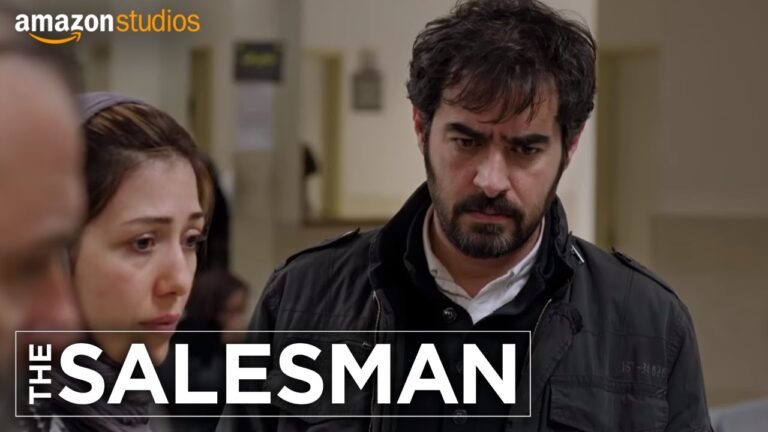Understanding Catholic Beliefs on the Trinity
The concept of the Trinity is central to Catholic faith, embodying the belief in one God existing in three distinct persons: the Father, the Son, and the Holy Spirit. This profound doctrine not only shapes the understanding of God’s nature but also influences the core practices and teachings of the Church. As millions of Catholics around the world uphold this belief, exploring its foundations and implications reveals a rich tapestry of theological significance that has endured through centuries of faith and tradition.
Do Catholics fully embrace the concept of Trinity?
Yes, Catholics fully embrace the concept of the Trinity, believing in one God in three persons: Father, Son, and Holy Spirit.
Do Catholics believe in the Trinity?
The doctrine of the Trinity is a cornerstone of Catholic faith, encapsulating the belief in one God manifested in three distinct persons: God the Father, God the Son, and God the Holy Spirit. This profound mystery reflects the nature of God as both unified and diverse, emphasizing the relational aspect of the divine. For Catholics, this understanding shapes their spiritual life and informs their worship.
Through the Trinity, Catholics recognize the unique roles each person plays in the salvation narrative. God the Father is the creator and sustainer of the universe, while God the Son, Jesus Christ, is the incarnate Word who redeems humanity through His life, death, and resurrection. The Holy Spirit, as the active presence of God, guides and empowers believers, helping them to live out their faith in everyday life.
Acceptance of the Trinity is not merely an intellectual assent for Catholics; it is a lived reality that influences their relationship with God and each other. By embracing this doctrine, Catholics are invited into a deeper communion with the divine, fostering a sense of community and shared purpose among believers. The Trinity serves as a reminder of God’s love and the interconnectedness of all creation, encouraging Catholics to reflect that love in their lives.
Which religions reject the belief in the Trinity?
Several religious groups diverge from the traditional Christian belief in the Trinity, which defines God as three distinct persons in one essence: the Father, the Son, and the Holy Spirit. Among these groups are the Unitarian Christians and Unitarian Universalist Christians, who emphasize a single, indivisible God and reject the concept of the Trinity as unbiblical. Their beliefs center on the unity of God, focusing on the teachings of Jesus without attributing divine status to him in the same way mainstream Christianity does.
In addition to Unitarian movements, there are other denominations that also reject the Trinity. For example, the Christadelphians and the Living Church of God hold unique theological positions that affirm a strict monotheism. They emphasize the oneness of God and often interpret scripture through a lens that avoids Trinitarian implications, leading to distinct practices and beliefs that set them apart from traditional Christian teachings.
Smaller groups, such as the Assemblies of Yahweh and the Church of the Blessed Hope, further illustrate the diversity of thought regarding the nature of God. Each of these denominations contributes to a broader understanding of Christianity that exists outside the mainstream perspective on the Trinity, highlighting the richness and complexity of religious beliefs and the various interpretations of scripture that shape them.
What distinguishes Catholics from other Christians?
Christianity, a major world religion rooted in the life and teachings of Jesus, encompasses a diverse range of beliefs and practices. Among its various branches, Roman Catholicism stands out as the largest, representing a distinct tradition within the broader Christian faith. While every Roman Catholic is indeed a Christian, the term “Christian” encompasses a wide array of denominations and interpretations of Jesus’ teachings, making it clear that not all Christians identify as Roman Catholic.
Unraveling the Mystery of Three in One
The concept of “Three in One” captivates the imagination, blending the tangible with the abstract in a seamless dance of unity. This intriguing idea often manifests in various contexts, from the mystical realms of philosophy and spirituality to the practicalities of everyday life, like the synergy found in a well-balanced team. Each facet—be it body, mind, and spirit or past, present, and future—intertwines to create a holistic experience that transcends its individual components. By exploring the interconnections within this triad, we unlock deeper insights that not only enhance our understanding but also enrich our existence, inviting us to embrace the complexity of simplicity.
Exploring the Essence of Divine Relationship
In the intricate tapestry of human experience, the divine relationship stands as a profound thread that weaves together purpose, connection, and love. This sacred bond transcends the ordinary, inviting us to explore the depths of our spirituality and our place within the universe. As we seek to understand this relationship, we uncover the essence of our existence, revealing how faith, compassion, and reflection can transform our lives. Embracing this divine connection not only enriches our individual journeys but also fosters a sense of unity, reminding us that we are all part of a greater whole. Through this exploration, we find clarity, guidance, and the unwavering strength to navigate the challenges of life with grace and resilience.
A Deep Dive into Catholic Doctrine
Catholic doctrine is a rich tapestry woven from centuries of theological reflection, scripture, and tradition, offering believers a comprehensive understanding of faith and morality. At its core, the doctrine emphasizes the importance of the sacraments as vital channels of grace, encouraging personal and communal growth in holiness. The Church teaches the value of love, charity, and service, guiding Catholics to live out their faith in everyday actions. Central to this doctrine is the belief in the authority of the Pope and the Magisterium, which helps interpret scripture and traditions, ensuring continuity and unity within the global Church. This deep exploration of Catholic teachings not only shapes individual spirituality but also fosters a sense of belonging to a larger, divine mission.
The Trinity: Faith’s Cornerstone Explained
The concept of the Trinity stands as a foundational pillar of Christian faith, encapsulating the belief in one God existing in three distinct persons: the Father, the Son, and the Holy Spirit. This profound mystery emphasizes the unity and co-equality of each person, challenging believers to understand the divine relationship that transcends human comprehension. Through the Trinity, Christians experience a dynamic interaction with God, fostering a deeper connection through prayer, worship, and an understanding of God’s nature.
The Father represents the creator and sustainer, the source of all life, while the Son, Jesus Christ, embodies God’s love and redemption through His life, death, and resurrection. The Holy Spirit, the active presence of God in the world today, empowers believers, guiding them towards truth and imparting spiritual gifts. Together, these three persons reveal a multifaceted understanding of God’s character, inviting believers into a relationship that is both personal and communal.
Ultimately, the Trinity invites all who seek faith to explore the depths of divine love and grace. It challenges individuals to embrace the complexity of their beliefs while finding solace in the unity that the Trinity provides. As believers grow in their understanding of this core doctrine, they are reminded that faith is not just a set of beliefs, but a journey into the heart of God, where love, hope, and transformation abound.
Insights into God’s Triune Nature
Understanding God’s Triune nature invites us to explore the profound mystery of existence through the lens of the Father, Son, and Holy Spirit. Each person of the Trinity reveals unique attributes that contribute to a holistic view of divine love and purpose. The Father embodies the creator’s authority and nurturing presence, while the Son, through His incarnation, bridges humanity and divinity, offering redemption and grace. The Holy Spirit, as the active force in our lives, inspires, guides, and empowers believers to live out their faith with purpose and passion.
This interrelationship among the three persons not only deepens our comprehension of God but also transforms our understanding of community and relationship. Just as the Trinity exists in perfect communion, we are called to reflect this divine fellowship in our relationships with others. Embracing the essence of God’s Triune nature encourages us to cultivate unity, love, and service within our communities, fostering an environment where divine principles can flourish and transform lives.
The belief in the Trinity stands as a cornerstone of Catholic faith, embodying the intricate relationship between the Father, the Son, and the Holy Spirit. This profound doctrine not only shapes the spiritual lives of Catholics but also enriches their understanding of God’s nature and presence in the world. By embracing this mystery, Catholics find a deeper connection to their faith and a guiding framework for their beliefs and practices, fostering a sense of community and shared purpose within the Church.






